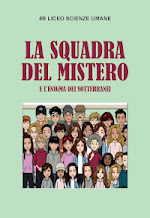With Remembrance day fast approaching, it’s opportunistic to memorialize the atrocities of the Second World War in any way possible. In fact, to start small at home, especially with a younger audience, it’s possible to commemorate by taking an hour and a half to watch a movie representing history. There are tremendous and acclaimed media that one could rely on to narrate and detail the hateful horrors of humanity: The Pianist (Il Pianista) which realistically portrays the trauma of war on a polish Jewish pianist locked inside his house for three years during World War two or Madame Rosa which tells the story of a french Holocaust survivor who runs a boarding house and is affected deeply by her past. While these are all extremely valid movies worth a watch, another good suggestion might be “Jojo Rabbit”.
Jojo Rabbit is an anti-hate satire directed and written by Taika Waititi who self-describes himself as a “Polynesian Jew”. Jojo Rabbit is a dark coming-of-age story about a 10-year-old kid, the titular Jojo Betzler in the last year of Nazi Germany. Jojo is a lonely German boy who discovers that his anti-Nazi single mother is hiding a Jewish girl in their attic. Aided only by his imaginary friend -Adolf Hitler- Jojo must confront his blind nationalism as World War II continues to rage on. The boy is an enthusiastic zealot of the Third Reich whose hateful ideology is challenged after he discovers Elsa, the aforementioned Jewish girl and he starts to grow up and learn about the destructive reality.
First and foremost it’s important to note that this movie is a so-called Menippean satire from the Greek writer Menippus which targets morals, attitudes or beliefs. This movie has a pretty clear target: Fascism. This satire is both tragic and hilarious, creating an image of the repugnant Adolf Hitler as Jojo’s imaginary friend- a charming buffoon with whimsical abandon. By depicting a cartoonish exaggerated Hilter the movie heightens the absurdity of fascistic beliefs. The rather vibrant and unexpected color palette from a child’s perspective shows the naivety of a child and how children but also people in general can fall into hateful ideologies that they wouldn’t otherwise believe due to their surroundings. The maintenance of the satirical tone is intended to engage the viewer in conversations about the fallacies of hate.
Although a satirical representation of Hitler might make a few people squirm, It should be noted that satire has been used forever to undermine the authority and power of a dictator. It's important, on the other hand, to remember that this film is all through Jojo’s perspective. Of course, being a child indoctrinated, he would look at his world and try to make sense of it through his imagination. All the silly quirks of the characters are because we are seeing through Jojo’s eyes. The first time he sees Elsa, she comes out of the trap door like a monster. The captain acts like a gunslinging cowboy. The gestapo have sickly sweet smiles. Even Jojo himself acts like the rabbit he thinks he is in many subtle ways. Some may make the argument that the Nazis are portrayed as too aloof and a little bit dull-witted, humor is actually a great way to underline the absurdity of the ignorant hate and the people who were involved in those horrific acts and people who somehow still managed to link to fascist ideologies. Dealing with fascism in a comedic way comes with the added benefit of being able to display some of the absolutely foolish and nonsensical propaganda against Jewish people because in reality, it was so outlandish as to come across as unbelievable The movie presents itself as more of a commentary on the rise of Neo-Nazis and the fact that the basic ideas the world agreed upon at the end of the war have, in some parts of the country, been largely lost. In fact, many political parties of today present fascist ideologies, and many people, mostly adolescents and young people, are indoctrinated with hate still today with absurd conspiracies, holocaust deniers, and many more tactics. The movie is simply expressing many of our fears that history may, in some form, repeat itself, in part because this conversation has been censored. The point of the movie is, in part, to bring to light just how ridiculous Nazi ideas are, but also how dangerous they can turn out to be. Ignoring them and making this cultural taboo gives them a kind of respect that they don't deserve. We have, by shoving down the Nazi conversation, legitimized it, and without raising the points found in films like Jojo Rabbit, we allow neo-Nazis to march without the backlash that they should receive. Although Nazis often play the cliché villain in Hollywood films, people must not forget that the Nazis were not simply heartless killing machines. In no way is this a sympathy letter to the Nazi regime, but rather a reminder that the same regime that murdered millions was also democratically elected into power by millions of others: we should fight against them culturally, we aren't doing enough, not to silence them, but to debunk them, to make fun of them, to prove that what they're doing is dangerous. We shouldn't be silent bystanders, not with this.
All this is not to say that the movie is just a comedy; after a while into the movie comes a series of horrific and heartbreaking moments that show the reality of the time. It does a fantastic job of showing the concept of learned hate and underlines how Germany’s rise to power wasn’t an overnight change but a gradual change that came from every single person ignoring little thing after little thing until it would take armies to defeat antisemitic hate. It is important to tell stories about these topics in as many unique and different ways as possible to keep these conversations going. If we’re not careful all those cycles of hate and indoctrination toward hate keep going on.
PRABHJOT KAUR - 3^B LS


































0 commenti:
Posta un commento